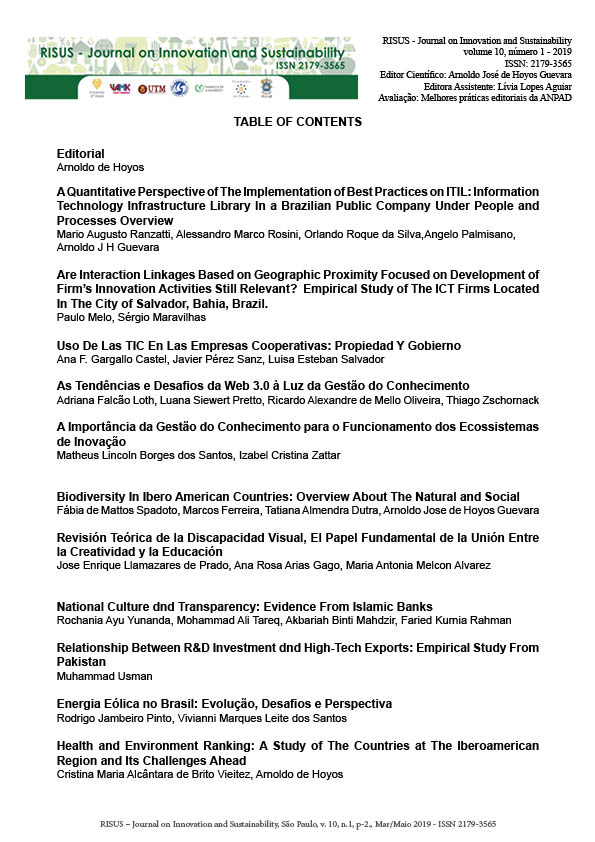WIND ENERGY IN BRAZIL: EVOLUTION, CHALLENGES AND PERSPECTIVES
DOI:
https://doi.org/10.24212/2179-3565.2019v10i1p124-142Keywords:
Energy matrix, Renewable energy, Sustainability.Abstract
The significant concentration of the world energy matrix in polluting sources and prices subject to instabilities, such as fossil fuels, has raised the search for countries by technologies and alternative sources, among them wind energy, as a way to increase security in energy supply and reduce the emission of gases responsible for the greenhouse effect. Thus, through a bibliographical research, the objective of this work is to systematize the potential of wind energy, through a study of evolution, challenges and perspectives, consolidate in the Brazilian energy matrix and contribute, in the long run, to a greater decentralization of and less dependence on non-renewable sources. In this sense, Brazil, benefited by natural factors and the development of the national industry, has favorable conditions for the exploration of this form of energy and has experienced great evolution, with wind energy being among the fastest growing in Brazil and being the second most competitive source of energy Brazilian energy matrix. However, the need to improve the logistics infrastructure, expand transmission lines, improvement in the planning of the start-up dates of wind power plants, as well as create a new policy to encourage renewable energies and make greater investments in research and development appear as important goals to be achieved so that wind energy can in fact consolidate in the national scenario.Downloads
Published
2019-03-12
Issue
Section
Papers
License
This Journal is licensed under a Creative Commons Attribution-Non Commercial-No Derivers 4.0 International license.
1.The author (s) authorize the publication of the article in the journal;
2.The author (s) warrant that the contribution is original and unpublished and is not in the process of being evaluated in other journal (s);
3. The journal is not responsible for the opinions, ideas and concepts emitted in the texts, as they are the sole responsibility of its author (s);
4. The editors are entitled to make textual adjustments and to adapt the articles to the standards of publication.


